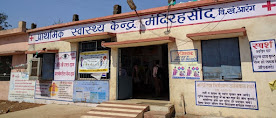Paradoxes of Free Health Care
Today I would like to write this blog based on stray thoughts based on my own notions or what are perceived by society of rights and obligations.
The pictures above tell a story Primary Healthcare, modern healthcare and free healthcare nations. We need weave our blog around these areas if we want to get any conclusions.
While I am not a welfarist socialist who will say that the almighty state which is the coercive tax collecting behemoth, is bound to provide free healthcare without any limitations, nor am I a free marketeer saying fend for yourself and you get what you deserve. Even as I see that contrary to one's expectations the green areas on the world map providing free care is bit larger or almost the same as that with no free healthcare. The mixed map of some free and some paid in which India is seen is the smallest group.
To my mind health and healthcare are both a right and responsibility for the simple reason that the variables which determine the state of a person's health are also under one's control or not under one's control.
My birth and genetic pool are not under my control and therefore if I am born with a genetic birth defect it is not my fault. However, my parents by way of ignorance or for other reasons marry late in life, maybe deserve to be made to pay for having given birth to me. The other side of the story is one of spontaneous mutations. Also, environmental pollutants or food chemicals may cause genetic defects which should make the state a culprit who should pay for the poor policy even if it has unintended consequences.
Basic human needs relate to clean air, good nutritious natural food, clean drinking water, decent protective clothing, a proper shelter with proper sanitation and sewage disposal are very basic things which the state must provide. To the states defence it was very difficult for the leaders of a new nation to strike a balance between steel and iron plants, coal mines, fertilizer and chemical factories, transport vehicles, motor vehicle and two and three wheeler factories which were the engines of growth development and jobs on one end and conservation of environment in the form of clean air, water and fuel which were important for good health. The Small is beautiful gave way to large factories being compared to the temples of modern India. To feed a hungry nation and its large population traditional Organic farming gave way to modern chemical farming. India had this transition from Agricultural to an Industrial society and repeated the mistakes of the Western world. Healthcare was the casualty. The poor conditions of the factories, the absence of proper labour policies, the migration to poor planned cities and in turn poor sanitation hygiene standards made healthcare a low priority difficult to solve problem for our leaders who get caught up in grand gestures of creating big infrastructure projects.
As late as in 2018 in many states of North India the distance between over 20% population and a PHC was over 5 kms. Also many PHC's in such states had a shortage of staff trained man power and equipment. Doctor patient ratio is 1:1445 as against 1:1000 and that too is having a an inequitable urban rural distribution where the mismatch is even worse. Pediatricians and Gynecologists are also unavailable and Maternal Mortality Rate of 97 in 10,000 live births are also a big problem. The problem of education is also bad and also while states in the South have nearly 100% literacy the states like Bihar languish behind. Also the quality of schools, is bad and nearly one-third of grade eight students in rural India cannot read at the expected level. As per the "India's Graduate Skill Index: 2023 report - About 44 percent of graduates are employable for top technical jobs, while 53 percent of Indian graduates are employable for top non-technical jobs.
For me two major changes are needed, health and education need to become election issues. Universal realistic insurance coverage for all the population of India is very much possible. Countries like Japan have achieved this in the 1960's. Since the country has such a large population the cost of universal basic healthcare at present rates with public private partnership is say Rs. 5/- per day. If we invest in better health infrastructure and educate the population the costs can go down even more. India spends less than 2.5% of its GDP on healthcare, doubling this can become a game changer.
Genuine public Private partnership with top stakeholders can be the model that can with a leap of faith make Universal Basic Healthcare possible in less than a decade. I know this is a bold statement but regulated healthcare with full time doctors and strict adherence to quality standards and standard treatment guidelines in a partnership that benefits all the stakeholders is not impossible at all.
Technology can be a gamechanger and use genome mapping risk markers and wearable devices which monitor health are part of my concept of digital hospitals which has been elaborated in a previous blog. https://vhjokhi.blogspot.com/2023/11/digital-hospitals-concept.html. I think both these read together can give a correct picture.
Conclusion: Our leaders need to focus on health and education and instead of using emotive issues like religion, caste and class let us talk of Universal Basic Health and Universal Basic Education and we will be the real super power we wish to be.
Vispi Jokhi






Comments
It is long journey but a necessary one for mation building and India needs to to occupy its place amongst the world nations . You have stayed well.